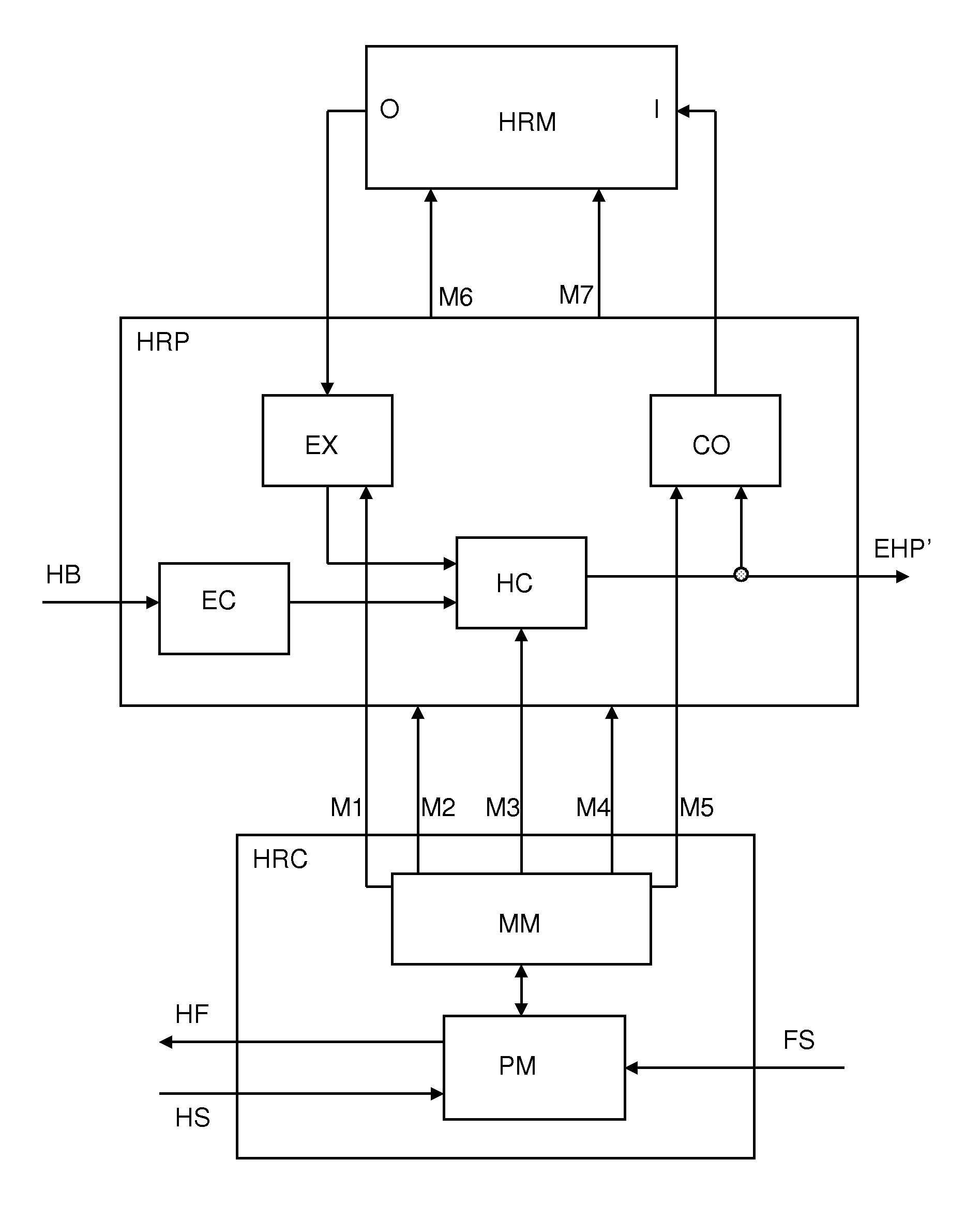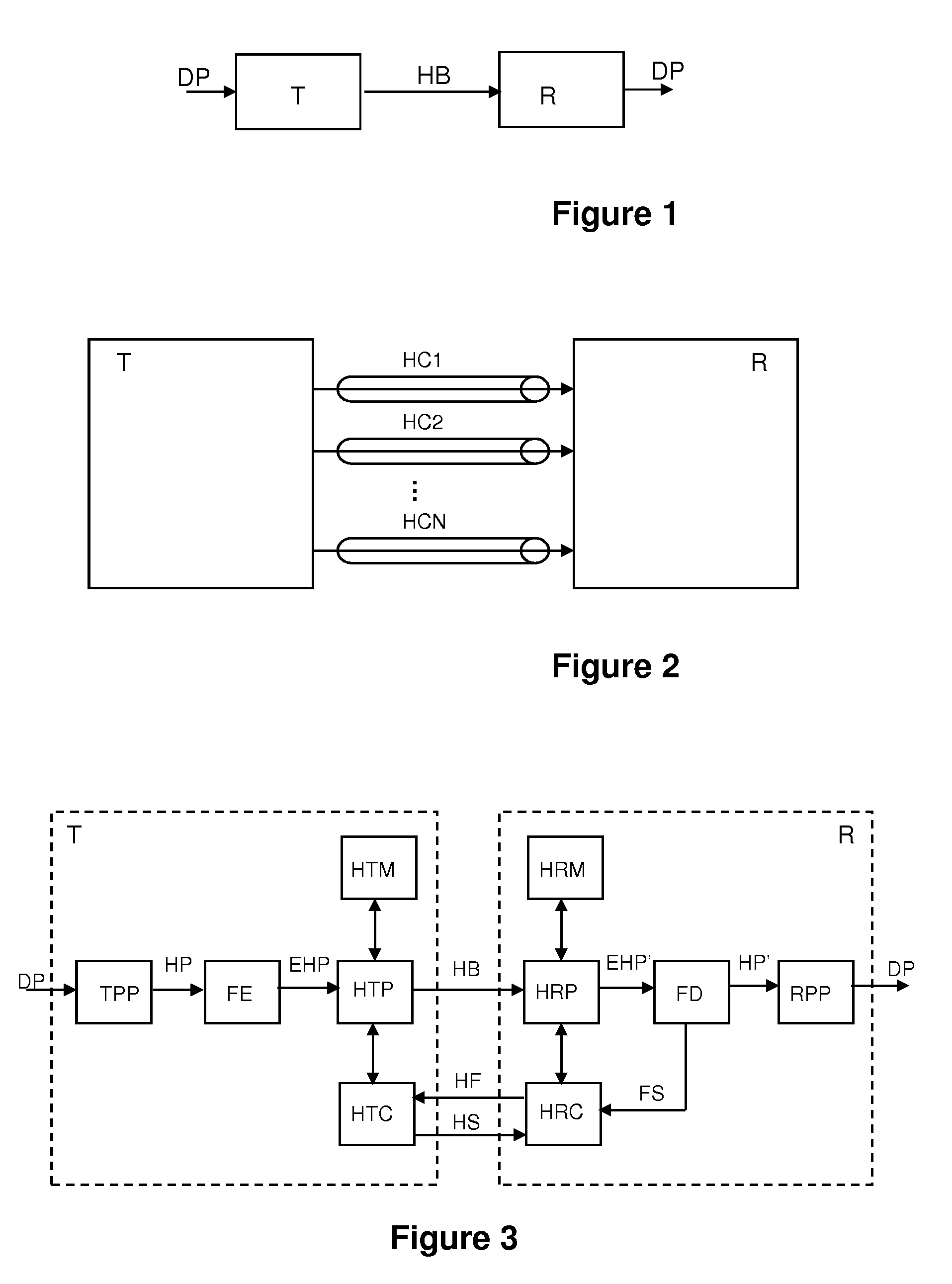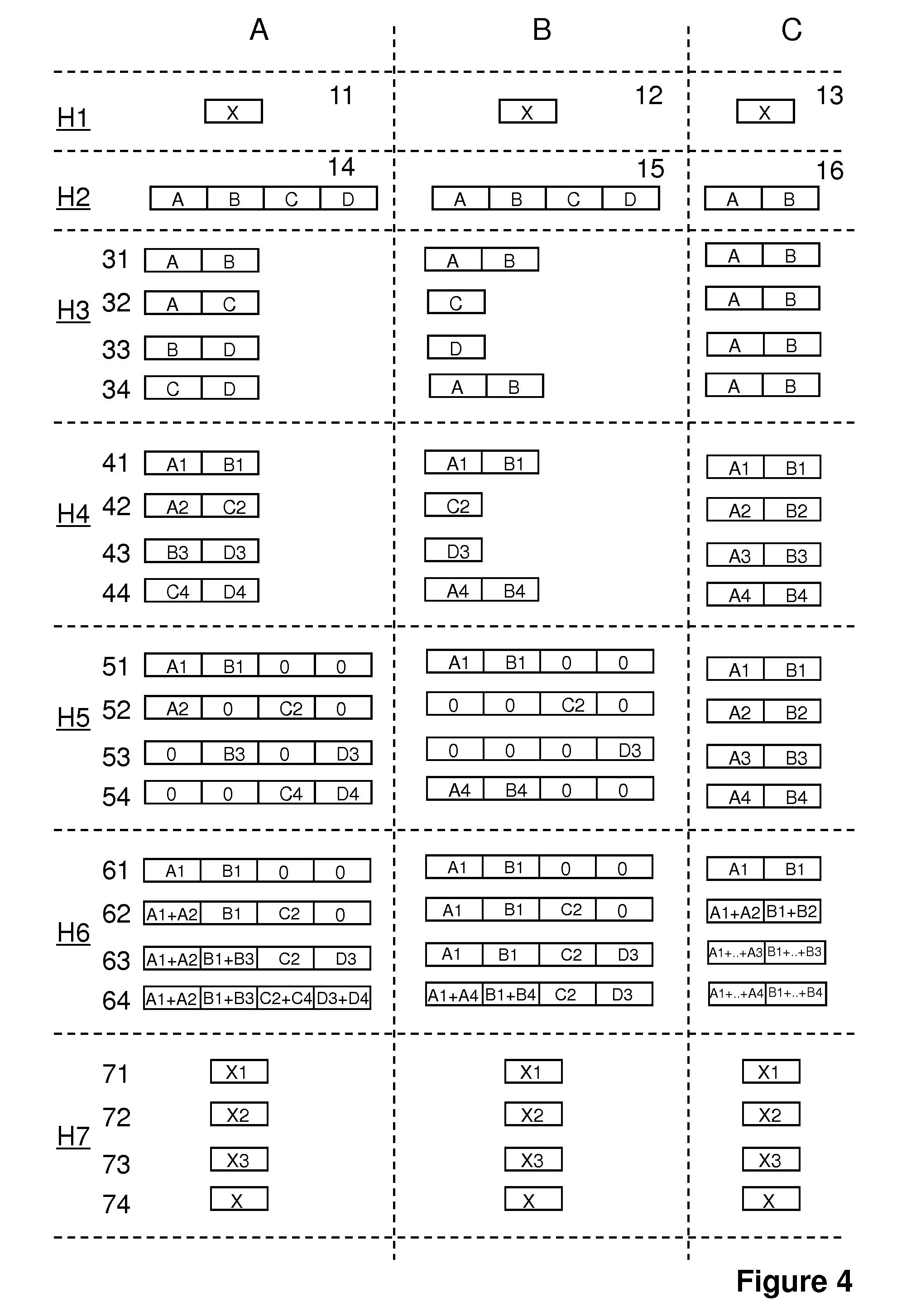Method and system for memory management in a HARQ communications system
a communication system and memory management technology, applied in the field of packet data communication systems, can solve the problems of large memory, high cost of on-chip memory, and inability to use off-chip memory, so as to reduce power consumption, improve memory reuse, and optimize the amount of memory needed
- Summary
- Abstract
- Description
- Claims
- Application Information
AI Technical Summary
Benefits of technology
Problems solved by technology
Method used
Image
Examples
Embodiment Construction
[0048]FIG. 1 shows a general schematic view of a conventional packet data communications system in which a plurality of data packets DP are provided to a transmitter system T which converts said data packets into HARQ bursts HB and transmits HARQ data bursts, through a communication channel, to a receiver system R, which basically converts said received HARQ bursts HB back into the plurality of originally transmitted data packets DP.
[0049]The packet data communications system uses a HARQ communications protocol in order to improve transmission reliability over the communication channel. HARQ provides time diversity and also combining gain or coding gain, useful in conditions where the communication channel and / or the interference powers fluctuate. It is also used to mitigate link adaptation errors, and, due to the acknowledgment mechanism, the increased gain is used efficiently (only when needed).
[0050]The HARQ protocol scheme used by the packet data communications system can be any...
PUM
 Login to View More
Login to View More Abstract
Description
Claims
Application Information
 Login to View More
Login to View More - R&D
- Intellectual Property
- Life Sciences
- Materials
- Tech Scout
- Unparalleled Data Quality
- Higher Quality Content
- 60% Fewer Hallucinations
Browse by: Latest US Patents, China's latest patents, Technical Efficacy Thesaurus, Application Domain, Technology Topic, Popular Technical Reports.
© 2025 PatSnap. All rights reserved.Legal|Privacy policy|Modern Slavery Act Transparency Statement|Sitemap|About US| Contact US: help@patsnap.com



